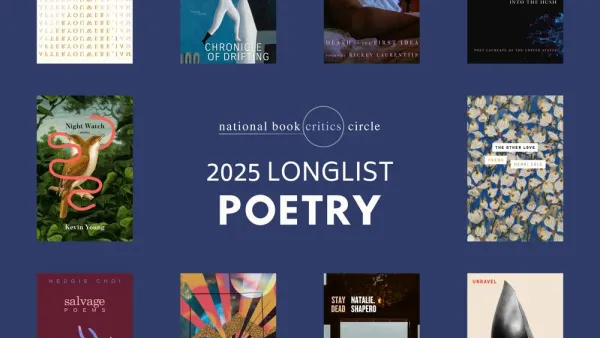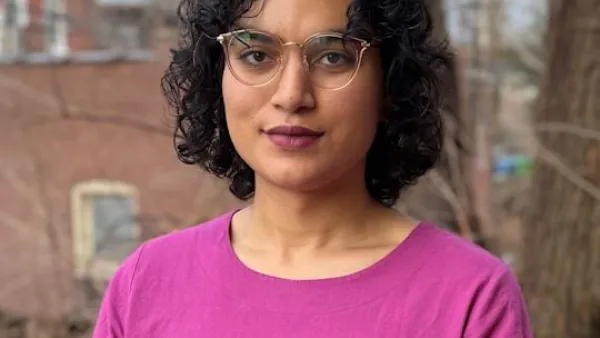We sent Victoria a series of questions geared toward her unique and varied expertise. What she sent back perfectly illustrates how many paths the study of English can take you down, as well as the importance of a compassionate teacher.
Victoria was called to the English Bar in 1995 and quickly established a High Court career focusing on public childcare work and complex private family work. At the time of her move to St. Louis she was Standing Counsel to three county local authorities and also undertook work for the Official Solicitor.
She moved to St. Louis and completed her PhD in English & American literature at WashU while having her three children, combining her interests in law and literature in a dissertation on “Piers Plowman, legal authority and the law of subject status.” Her focus on rhetoric and argument leads naturally to questions of authority in writing, and she particularly enjoys leading students to find their own authoritative voice with which to join the academic conversation.
Victoria teaches courses in Argumentation, Writing and the Law, and Exposition: Exploring Cultural Identity. She also teaches in the Prison Education Project.
The interview went as follows:
Q: What would be the epigraph to the book about your life?
A: "All shall be well" (Julian of Norwich). I'm generally a very optimistic person and I believe the arc of history bends towards justice. I have been so blessed in life that I have no fear of death - I'd like to put him off as long as possible but I don't fear him either! I like the mystic tradition of Christianity that encourages belief in ultimate good rather than adherence to a prescribed set of social rules.
Q: Do you have a favorite book of all time, or just of the moment? Why?
A: T.S. Eliot's Four Quartets. I grew up a few miles from Little Gidding so the poetry feels very local to me despite its timeless themes, and it somehow seems wholly right that I should move from there to his home town and work at the university founded by his grandfather. I love the idea of humanity constantly seeking progress through exploration and re-envisaging itself at the same time: "we shall not cease from exploration and the end of all our exploring will be to arrive where we began and to know the place for the first time." This is the joy of a career in education: we are constantly exploring.
Q: Is there any book that you wish you'd have written?
A: With Hilary Mantel's sadly sudden death I am going back and re-reading Wolf Hall/Bring up the Bodies/The Mirror and the Light. I admire her gorgeous sentences bringing the intrigue and chaos of the Tudor court to life and peopling it with relatable characters with urbane wit and crackling dialogue. I love her attention to detail and revealing metaphors which make the language of the books almost a character of its own. They are an absolute pleasure to read.
Q: Is there any word or phrase that you feel is underutilized and should be used more often? Is there any word/phrase which you think has been worn out and needs a break?
A: Underutilized - "Please help me understand." Overutilized - "This journey".
Q: How do you feel the study of English/Literature connects to the study/practice of Law?
A: Both law and literature question how we relate to each other and build a working community that enables all identities to flourish. The law is famously an ass when its principles are not applied with humanity, and literature shows us humanity at work. A good lawyer seeks to understand the characters involved and the culture they were living in and give the judge or jury the most reasonable interpretation of the events that happened with those characters in mind. A good reader does the same thing in their critical analysis. Literature gives us case law with more precise and beautiful use of language and no real damage to life or property!
Q: Tell us about your prison education experience. What motivates you to work with the prison population?
A: The blessings in my life have stemmed from the happy accident of my growing up in a stable, happy home with the guidance and care of wise and encouraging mentors. When people ask if I can think of a good teacher, I have a long list to choose from, not only from my junior, middle and upper school years but also from my church, the village, the Bar, the places I worked etc. This has shaped my purpose in life. I feel a very strong moral obligation to pay their kindness back in the form of my own time and commitment to all of my students. I love having them drop by for tea in the office or to walk my dogs around Forest Park with me or come for an end of semester class dinner. However, if we want to be "for St. Louis", we have to be "for all of St. Louis" and that includes the most marginalized of students. Well, it doesn't get more marginalized than shunted into rural Missouri and hidden behind chain-link fences. My prison campus classroom dynamic is exactly the same as the classroom dynamic on Danforth: it is a focused but happy, explorative space. The students come to WU like any other student, after a tough exam and interview process where we only accept those students we believe can manage the work we will demand of them. They are graded to the same standard as every other WU student, and given the same workload, but they have to do it all in the traumatic environment of a prison, often on top of their Department of Corrections work duties, and with the others in the prison belittling their efforts and dreams. They.have the same anxieties about their papers, about raising a hand and arguing, and about following an idea all the way to its conclusion. However, their hopes are the same as those on Danforth. They are hoping to gain the skills that will enable them to lead productive lives, and to be exposed to the ideas that will help sustain them when times are hard. They are studying under the bleak conditions, often without much support to lean on, but they come to class eager and ready to learn, bringing their energy, their zest for life and their humanity despite being in a place designed to drain them of all three. The students in our prison campus have made bad choices but these have often been the result of their circumstances more than their character. None of them have had childhoods like mine or the guidance that I have been so lucky to receive. They inspire me daily, and remind me to savor the beauty of Danforth and the good fortune we have of working here, and to try to meet every student where they are on that day to do what I can to encourage them forward. Whilst I am grateful for the inspiring Danforth facilities, my MECC students remind me that the struggles of being a student are about more fundamental issues than physical surroundings and my focus must be on helping each student progress holistically.
Q: How does the setting in which you teach influence a course's subject matter? Are there nuances to be considered in a setting like a prison which do not apply to a school?
A: I hope that my classes are teaching skill sets that students will take with them as they move on to the next experiences in their lives whether in the practice or process of critical thinking, or in the creation of our class community. I think intentionally about the sequence of assignments in my classroom to scaffold that classroom community in hopes it will open students up to greater depth to their engagement and learning. Every classroom needs differing levels of that; some groups just gel quickly and some take more intentional work on my part. Whether we are in the prison or not does not make any difference. As to subject matter, I don't think any subject should be off limits in any classroom. I believe the key is establishing the classroom community as a place where each member is valued and recognized as an important part of the group, so that difficult topics can be addressed honestly and sincerely: there may be missteps along the way, but so long as everyone understands that there is no intent to injure or deny agency to another, a full conversation can be had. For me, this is one of the great joys of teaching Argumentation: we are teaching people how to have difficult conversations with authenticity but also empathy and humanity.
Q: Are there substantial differences between the way the British and Americans approach the study of English?
A: Not that I've noticed but it has been a while since I taught or was taught in England. The only major difference was that we wrote a lot more essays in High school than is common in the US system (I have three kids who have gone through the US system so I have seen it through their eyes). I had a 5 page five paragraph essay due every week of my junior and senior years so essay writing was not even taught at college as we had done so much of it already it was assumed we knew what we were doing.
Q: What is your go-to favorite meal in St. Louis?
A: CWE Sushi Koi's Euclid roll with Scallop Nigiri or the Deluxe hummus at Olio.
Q: How would you like to see the WashU English Department progress in the coming years?
A: I would love to see more collaborative work with other departments. Literature reflects the culture that inspires it and is expressed in the language of that culture so it is not difficult to see how our faculty's talent for critical reading could enhance and be enhanced by research ideas outside our silo. Life is a mix of disciplines and I would like to see our research reflect that. As we do that work, I hope our department continues in its commitment to encourage all voices to be at the table and heard with equal respect: "and" is so much more productive than "or".
We would like to extend a heartfelt Thank you to Victoria Thomas for all of the time and thought put into answering our questions!




